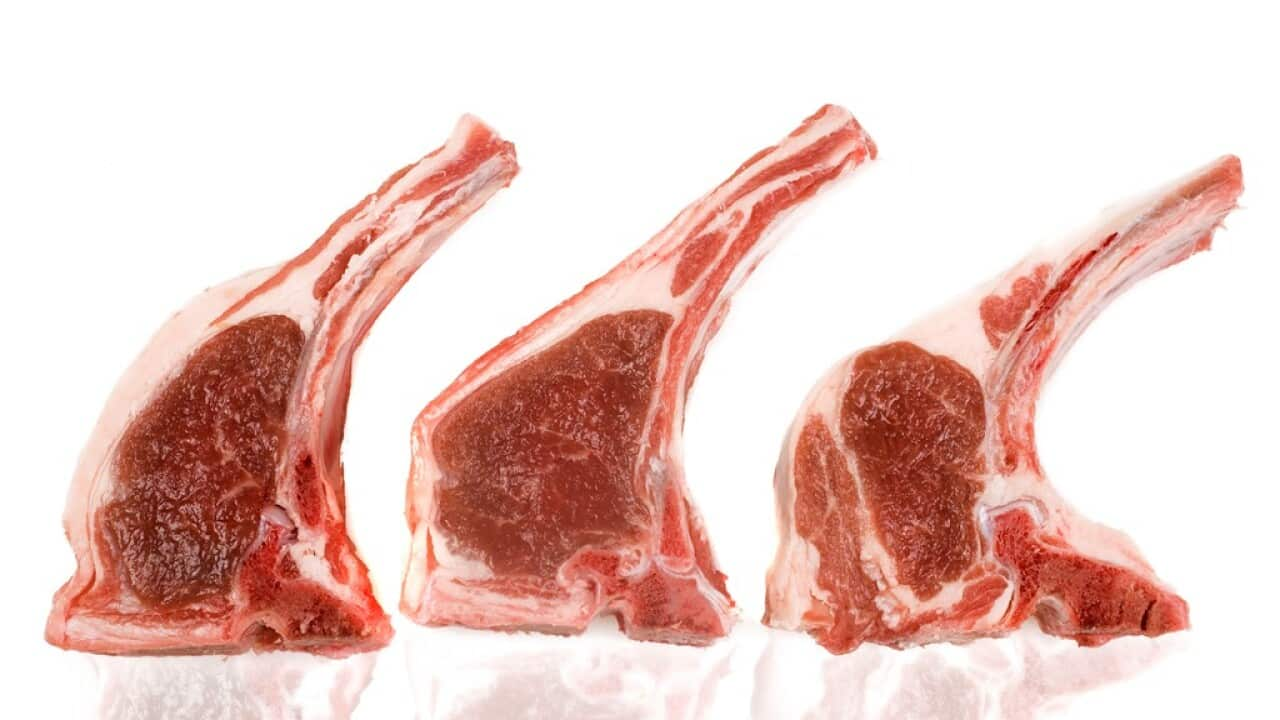Getting it wrong when it comes to food preparation or storage can cause all sorts of nasty health issues, even death - but what about tinned food?
While around 4.1 million Australians suffer from food poisoning every year, according to the it is rare that this occurs from tinned food. However, it does and can occur. "Historically there have been cases of from cans that weren’t sealed properly," Lydia Buchtmann, spokesperson for the Food Safety Information Council, tells SBS.
While most of us know botulism due to its wrinkle-freezing properties, it is also a food borne disease, which can cause serious illness. “When botulism – Clostridium botulinum – grows in food, usually due to it being heated, or stored in conditions which allow the spores to germinate, it can cause food poisoning symptoms,” says Buchtmann.
How to store food from cans
“Once opened, canned foods are often highly perishable,” says Dr Ronald McCoy, spokesperson for the Royal Australian College of General Practitioners. “Opened canned food should be treated in the same manner as regular food, and should not be stored any longer than its uncanned version.”
According to Buchtmann, you shouldn't store an opened tin or can in the fridge once opened, as "the tin or iron can , giving it a metallic taste". This tends to occur in the tins of the more acidic tinned foods, such as fruit juices and tomatoes.
If you are a regular user of tinned foods, then it may be worth investing in proper storage to lengthen the life of your leftovers.
Nicole Dynan, spokesperson for the Dietitians Association of Australia tells SBS: “If you still have food left in the tin, decant these into a airtight sealed container, (preferably with a glass bottom), in the juices, brine or sauce they are tinned or canned in, for maximum longevity. If possible, label the container with the date it was stored."
You can also use plastic lids to preserve the food, but, advises Buchtmann, remember to treat the food as perishable food once it is opened. "Store in the fridge and use it or freeze the contents within three days.”
The good news is that not all tinned foods need to be decanted. "Some dry foods or very sugary or fatty ones like jam or peanut butter can be stored in the open tin in a cool, dry, place," says Buchtmann. "Check what the label says about storage, but if it says to refrigerate do so. Some foods like jam which used to be kept unrefrigerated now have less sugar content, which is good for our health, but means it may need to be refrigerated, so once again check the label instructions."

Source: Kylie Walker
Are use-by dates necessary?
According to the Food Standards Agency, if your canned food has a shelf-life of less than two years, it will have a on the label, or tin. While you can eat the produce after this date, they might have lost some quality or nutrition, advises Lydia.
"Many cans will have a shelf life of longer than a year so won’t be required to have a best before or use by date, but make sure it doesn’t linger forever in the back of your pantry by storing the newest can (or any food package) at the back of the pantry so you use the oldest ones at the front first," says Lydia. "Don’t forget to clean out your pantry a few times a year and discard out-of-date food." (Find more about the shelf life of foods in from the CSIRO.)
• swelling and/or leakage
• rust and scratches
• broken tamper-evident seals
• dented or damaged containers
• damaged seams (joins)
“Do not purchase the food if you see any of these problems,” Dr McCoy tells SBS. “Or, if you notice that your stored foods have any of the above, do not eat them and discard it.”
Safety starts before you open the can
As with all foods, care when handling is important says Dr McCoy, and says it's important to follow these rules:
1. Wash or wipe the top of the container before opening. This will prevent any bacteria getting into the opened food.
2. Use a clean can opener. Make sure you wash the opener after use and ensure there is no rust.
3. Wash your hands with warm, soapy water, before handling the contents of the can.
4. Make sure that the surfaces you'll be preparing food on and the implements you are using are clean.
Keep your unopened canned foods , ideally in the cupboard. If, when you open the tin and there is an unpleasant or unusual odour, if the contents have an unusual odour or colour, or if you notice that the inside of a metal container (or lid) is rusted, it's best to dispose of the contents.
“Some people believe the information on the date is more important than the appearance of the food! Humans are very good at detecting off food – trust your senses,” says Dr Ronald McCoy.






